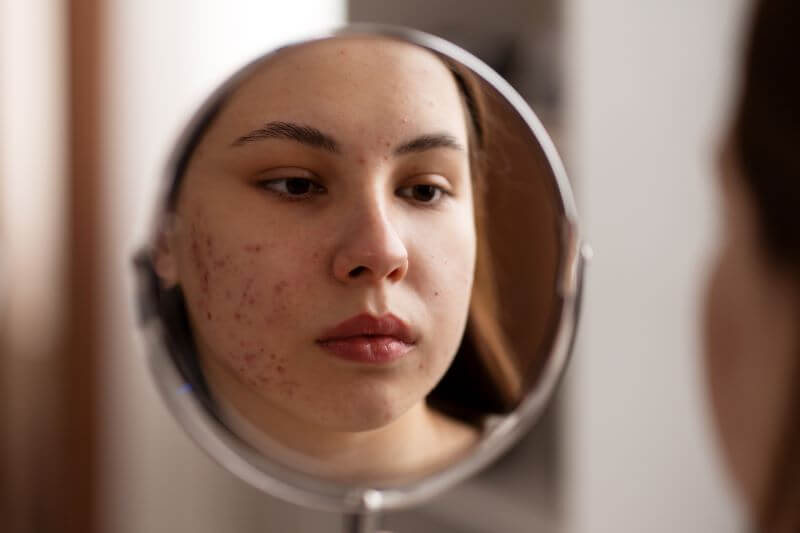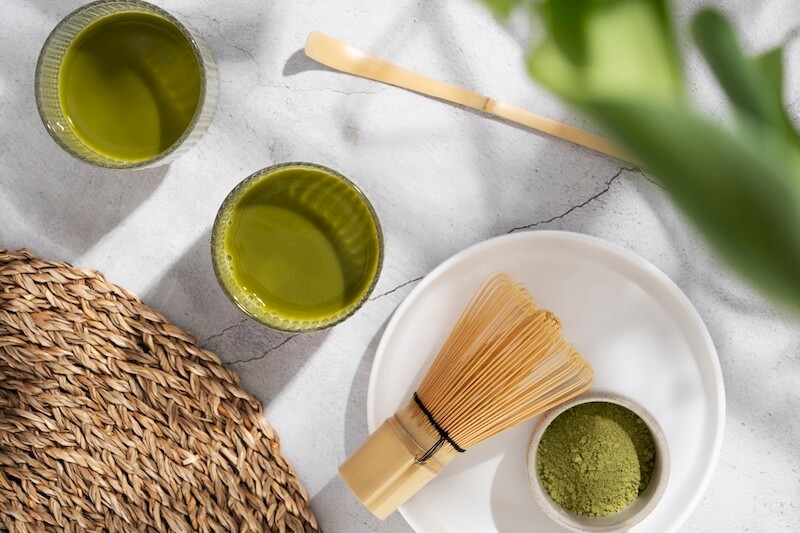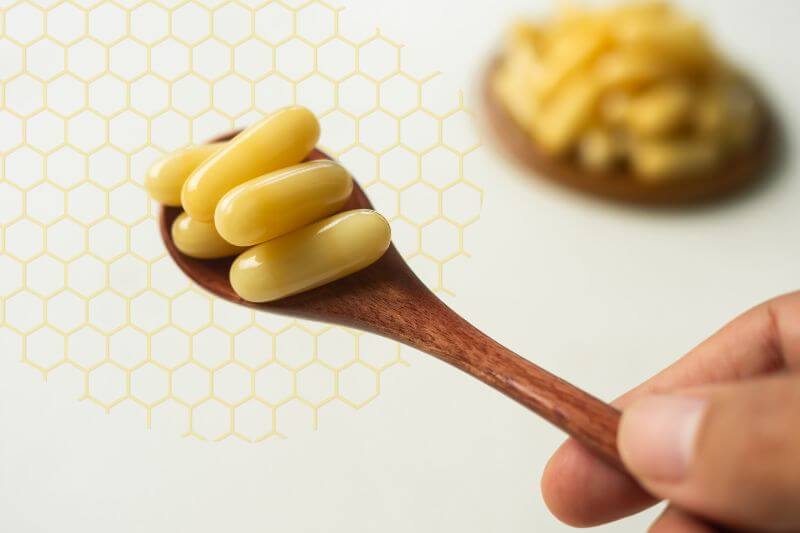Did you know that nearly 80% of adolescents and 40% of adults experience acne at some point in their lives? While hormones and genetics play a significant role, diet also impacts skin health. What foods should you focus on, and which ones should you steer clear of?
Acne is not solely a matter of hygiene or genetics. It is a chronic inflammatory skin condition resulting from excessive sebum production, blocked hair follicles, and the overgrowth of certain bacteria, notably Cutibacterium acnes.
Have you tried everything to combat acne—creams, dermatological treatments, natural remedies—and yet the blemishes persist? What if the answer lies in your diet?
Understanding the Link between Diet and Acne for Prevention
Blood Sugar Levels and Acne: How Glycemic Index Affects Your Skin
Foods with a high glycemic index, such as refined sugars, white pasta, and sugary drinks, cause a rapid spike in blood sugar levels. In response, the body produces more insulin to control this glucose surge.
This insulin boost encourages sebaceous glands to produce more sebum, increasing the likelihood of clogged hair follicles and pimple formation. Thus, a diet high in refined sugars can exacerbate acne.
Why Some Dairy Products May Trigger Acne
Dairy products, particularly skim milk, contain growth hormones like IGF-1, which can disrupt the body’s hormonal balance. This disruption stimulates sebum production and can lead to breakouts.
While the impact of dairy on acne can vary among individuals, some studies suggest that reducing dairy intake may help curb acne flare-ups.
How Saturated Fats Contribute to Acne
A diet high in saturated fats, found in fatty meats, whole dairy products, and processed foods, can increase inflammation throughout the body.
This systemic inflammation may also affect the skin, contributing to the emergence of pimples and making skin more reactive to external factors.
Anti-Acne Foods: Choose Wisely for Radiant Skin
Antioxidants: Your Allies for Glowing Skin
Fruits and vegetables rich in antioxidants, such as citrus fruits, berries, spinach, and carrots, are beneficial for skin health. These foods help combat oxidative stress, which can damage skin cells and worsen inflammation.
Vitamins C and E, along with beta-carotene found in these foods, contribute to skin regeneration and help prevent acne scars.
Omega-3s for Soothing Skin
Omega-3 fatty acids, found in fatty fish (like salmon and mackerel), flaxseeds, walnuts, and chia seeds, possess potent anti-inflammatory properties. They help reduce both systemic and skin inflammation, potentially improving acne.
By balancing the intake of omega-3s with omega-6s, you can lower inflammation and enhance your skin’s appearance.
Fiber-Rich and Probiotic Foods
A diet abundant in fiber from vegetables, fruits, and whole grains supports a healthy gut microbiota. Probiotics, found in yogurt, kefir, and sauerkraut, also contribute to this balance.
A well-balanced gut microbiome aids in reducing inflammation throughout the body. This, in turn, helps protect the skin from acne outbreaks. Furthermore, fiber promotes healthy digestion, which can positively impact skin appearance.
Top Three Enemies of Your Skin
Too Much Sugar, Too Many Breakouts
To avoid acne flare-ups related to high glycemic foods, make healthy alternatives a daily habit. Swap white bread for whole grain, sugary cereals for oatmeal, and refined pasta for whole-grain or legume-based pasta.
Choose low-glycemic snacks like nuts or raw vegetables with hummus. By eating a fiber- and protein-rich diet, you stabilize blood sugar levels and reduce excessive sebum production, thereby limiting the risk of acne outbreaks.
Milk: Friend or Foe for Your Skin?
While not all dairy products are linked to acne, some individuals notice skin deterioration after consuming milk, especially skim milk. The hormones present in milk can disrupt hormonal balance, stimulating sebum production.
If you are sensitive to this effect, it is advisable to limit your dairy intake. You may also consider plant-based alternatives.
Fatty Meats, Fast Foods, and Acne: Beware the Risks!
Saturated fats and ultra-processed foods, such as fast food, industrial snacks, and deli meats, are detrimental to cardiovascular health and also promote inflammation. This inflammation can exacerbate acne vulnerability. It’s crucial to minimize the consumption of these foods.
Red meat contains leucine, an amino acid that activates mTORC1, which is involved in excessive sebum secretion and hyperkeratinization. Therefore, moderation in red meat consumption is also advisable.
Favor healthier fat sources, like avocados, nuts, and unrefined vegetable oils, which can help maintain skin health.
Remember that diet does not affect everyone the same way. Acne may be influenced by simple dietary changes in day-to-day life. By choosing low-glycemic foods, increasing your intake of fatty fish, and limiting dairy products, you can reduce inflammation and sebum production.
These practical and easily applicable changes can not only enhance the health of your skin but also contribute to overall well-being.
Important Note
While diet is a key factor, hydration is equally important for skin health. Staying properly hydrated helps eliminate toxins from the body, maintains skin hydration, and supports its regeneration process. Well-hydrated skin is less likely to produce excess sebum.







